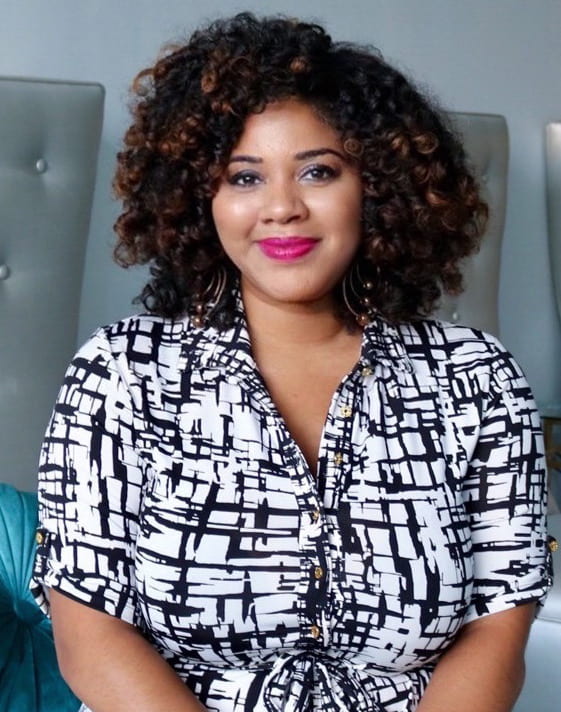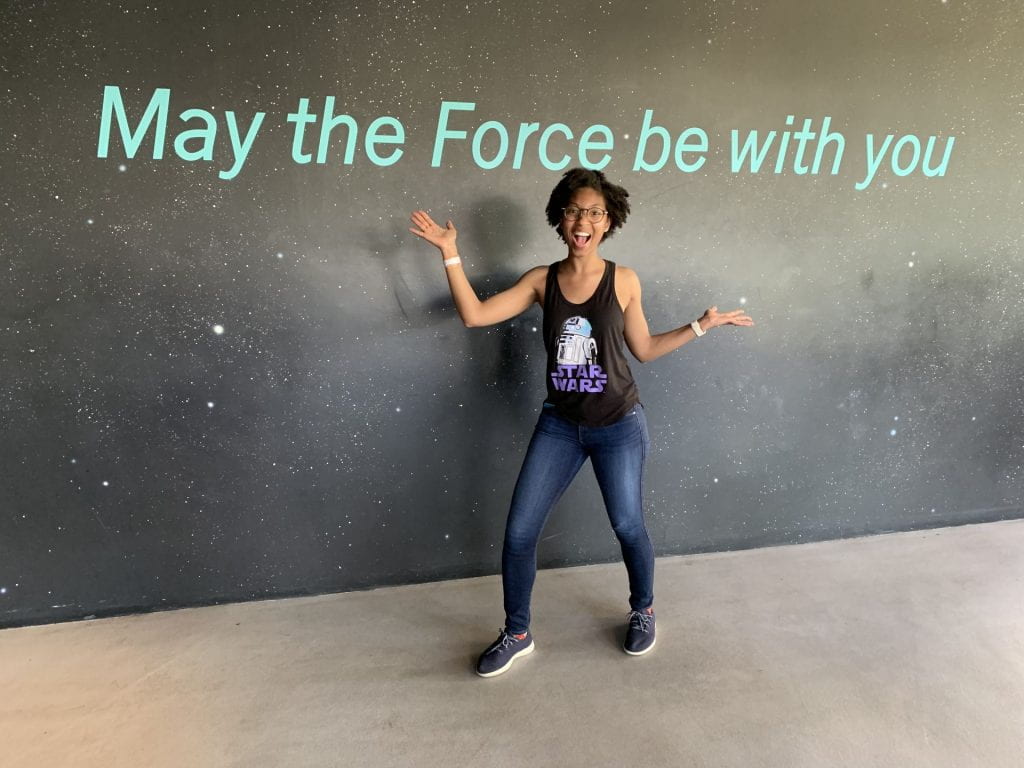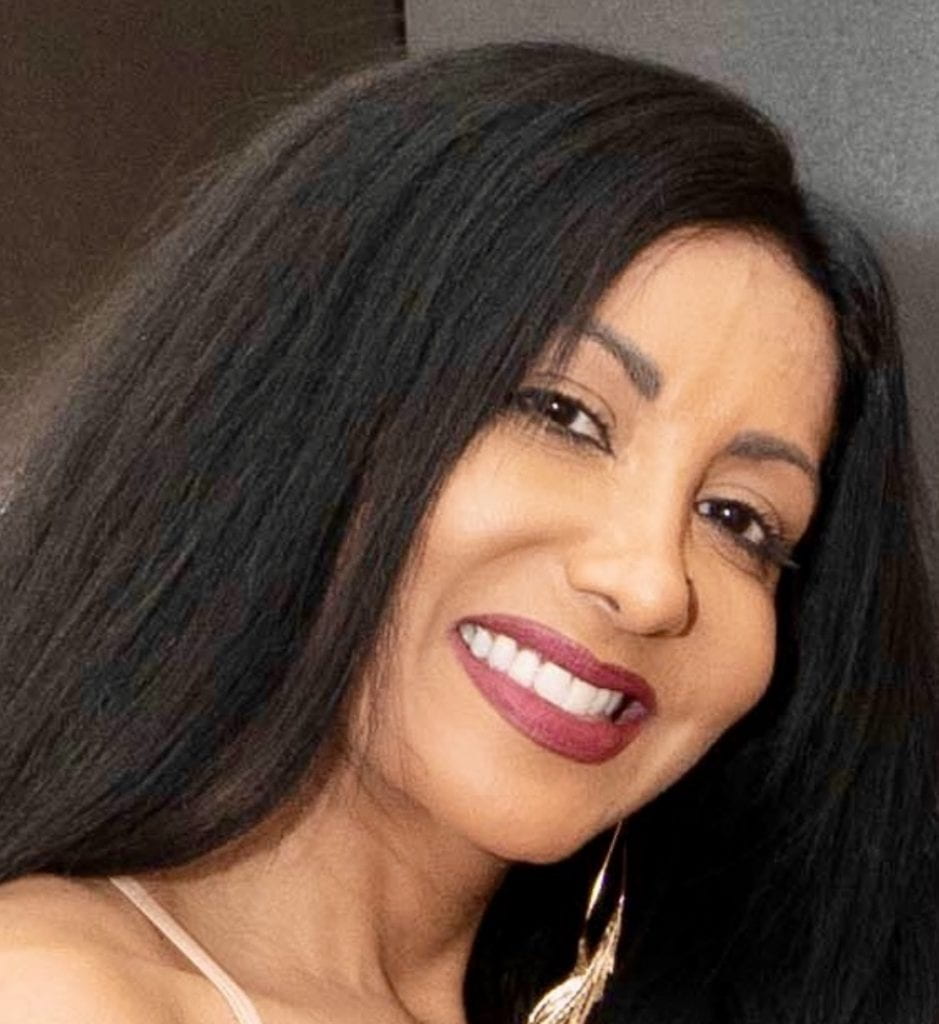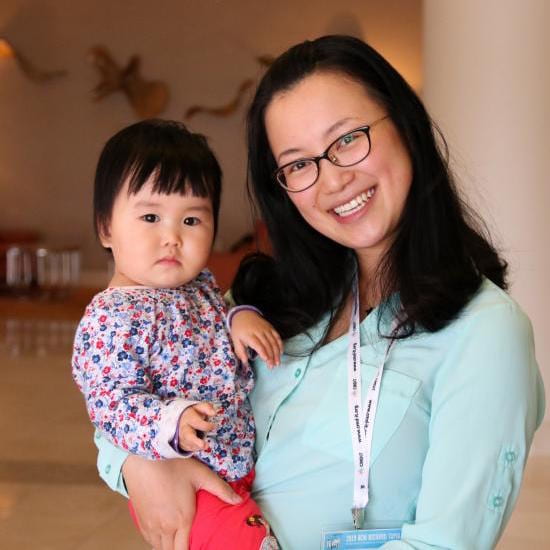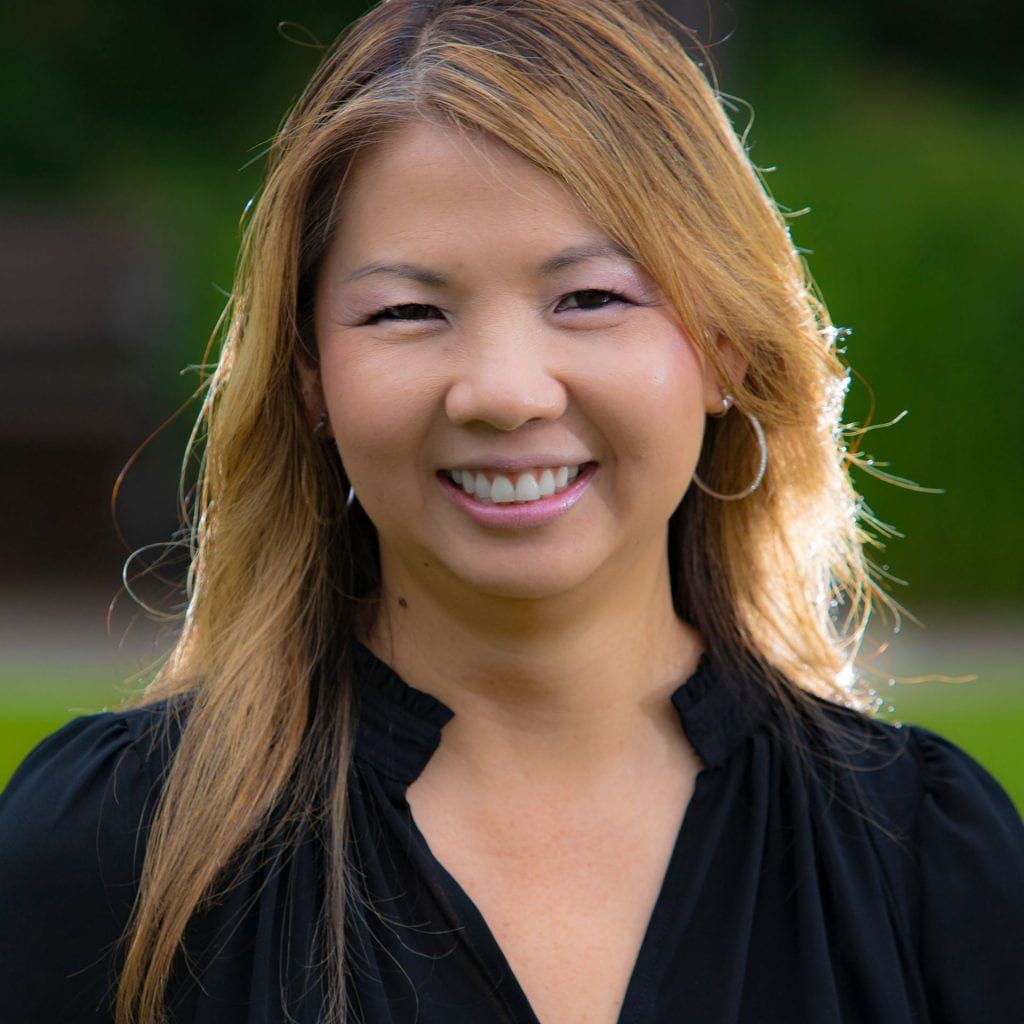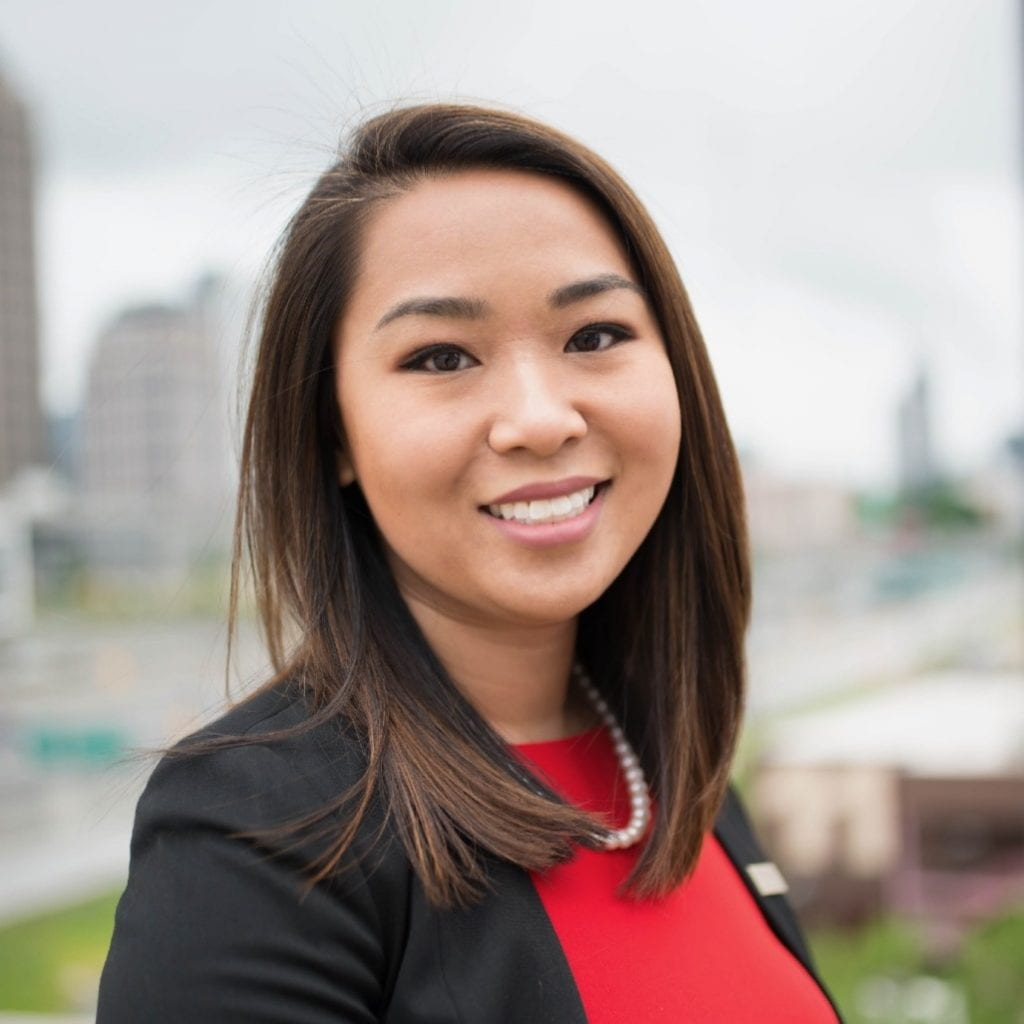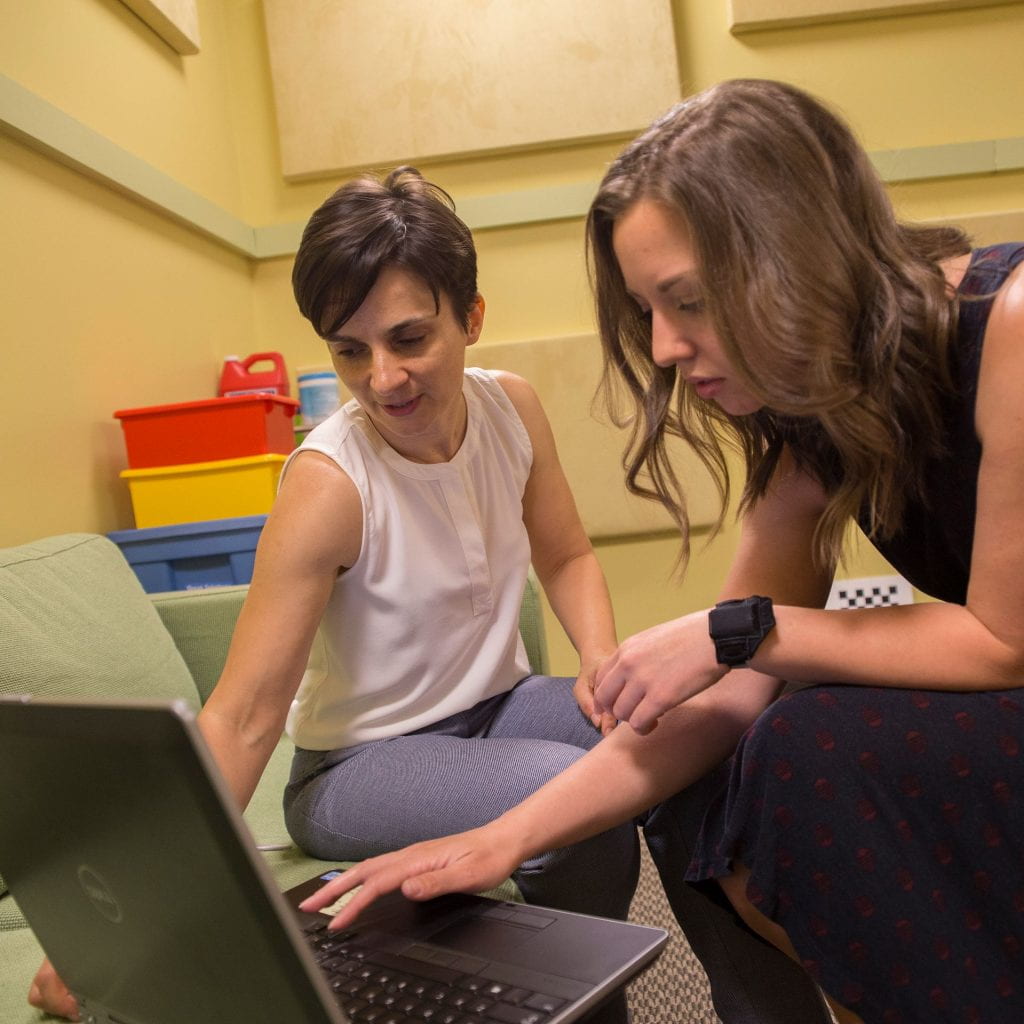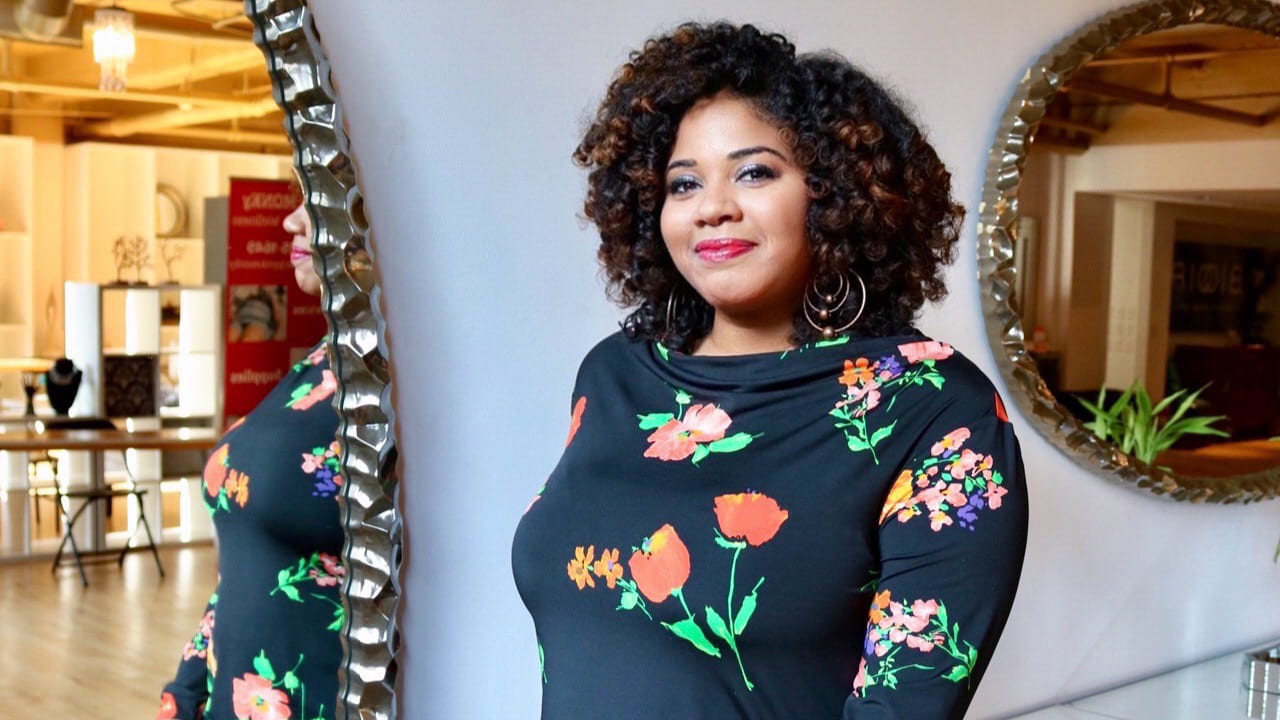
Empowering Women Through Hair Care
Candace Mitchell Harris had the root of an idea as a junior computer science major at Georgia Tech. Looking for a way to combine her passions for technology and hair care, in addition to her own search to find the right hair products for herself, she founded Myavana.
Entrepreneurship at Georgia Tech
The InVenture Prize and the Flashpoint accelerator program, now called the Center for Deliberate Innovation, were vital pieces to the launch of Myavana. Each year, InVenture and CDI, along with other programs like Create-X provide funding, mentorship, and a place to take ideas from dream to reality. Learn more at each link above.
“The second hardest thing I have ever done is graduate from Georgia Tech. Starting a business is the only accomplishment that beats it,” said Candace Mitchell Harris, CEO and co-founder of Myavana and a 2011 computer science graduate.
Founded in 2012, Myavana – meaning “my hair nirvana” — combines data science with cosmetology by offering customers a personalized hair analysis and recommending the perfect products for their unique hair texture and type.
Myavana started to take root in Mitchell Harris’ mind during her junior year at Georgia Tech when she started looking for a way to connect computer science to her other interests and needs.
“I was hitting a brick wall. I knew I liked computer science, but I was kind of feeling out of place. I was asking myself, ‘should I continue doing this?’ or ‘is this right for me?’ Questions that were really hitting me hard, especially as a woman in a space where there were not many other females,” said Mitchell Harris.
These questions led Mitchell Harris to consider what else she is passionate about. She had also considered becoming a hair stylist. So, she began to look for ways to combine technology with haircare. At the same time, Mitchell Harris was going natural with her own hair and going through trial-and-error time and time again to find the right products to help heal her damaged hair.
“At the time, consumers would go to the store and be so overwhelmed by the product choices – myself included. I saw a space to innovate and transform the beauty industry and ultimately give people a better experience,” said Mitchell Harris.
Soon after, the idea for Myavana was born and Mitchell Harris pitched it for the InVenture Prize, making it to the semi-finals. A year after graduating, Mitchell Harris received her first seed investment as a part of the Flashpoint accelerator program based in Tech Square. Now, nearly a decade later, Mitchell Harris is continuing to break barriers within the beauty and tech spaces.
The road to success has not always been a smooth ride and Mitchell Harris credits the rigor of the Georgia Tech experience, along with the mentorship of School of Computer Science Distinguished Professor Merrick Furst, and inspiration from the likes of Sarah Blakely and Indra Nooyi, for helping get her where she is today. She is also a huge fan of “generational collaboration” or learning from people both older and younger than her and passing on the wisdom to whoever needs it.
“Mentorship has made a huge difference in my life. I think it’s important to learn from people who have had the experiences you’re going through. You should have mentors who are in different industries, different genders, and from as many other perspectives that are helpful to you,” said Mitchell Harris.
“Mentorship has made a huge difference in my life. I think it’s important to learn from people who have had the experiences you’re going through. You should have mentors who are in different industries, different genders, and from as many other perspectives that are helpful to you.”
The need for diverse mentorship struck Mitchell Harris especially hard as she pitched her idea to various investors and competition judges, realizing that the majority of them were male, and many were bald.
“They couldn’t relate at all to what I was talking about. I knew I had a great idea and the technology was right, but I needed people with more business experience to help me sell my product. I’m so grateful for everyone put in my path who have helped me learn these skills,” said Mitchell Harris.
These connections and skills helped Myavana beat the dismal statistics surrounding start-up success. “A difficult part of entrepreneurship is battling all of the odds and fighting against the statistics that say you’re most likely going to fail and choosing to believe in yourself regardless,” said Mitchell Harris. “Entrepreneurship shows you how resilient you are and you have to be okay to fail and try again.”
Moving forward, Mitchell Harris hopes to continue creating new opportunities and being a role model for the next generation of female entrepreneurs and technologists. “People know what is possible based off of what they see and can experience. I hope that business and tech are no longer fields where it’s only dominated one gender or one race. I want the next generation to see people of all types of experiences in leadership roles or in positions where people are able to contribute their gifts and talents in a meaningful way and know that it’s possible for them too.”
Bridgette Powell (BS CS ’10) | Senior Software Engineer at MobileCoin
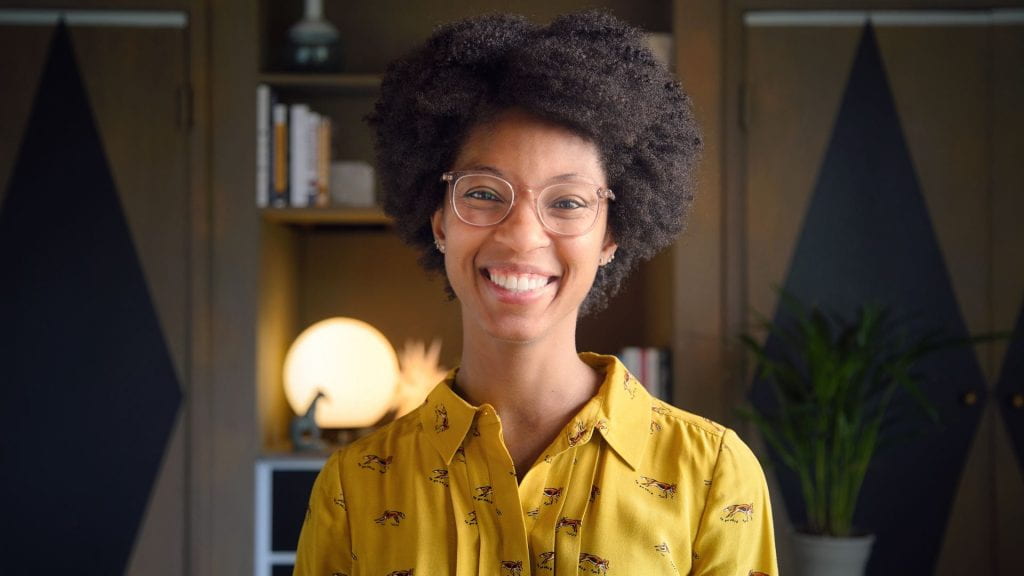
What role has mentorship played in your life, either as a mentor or mentee?
I haven’t formally had a mentor, however I’ve always made a point to reach out to people that I find inspiring to learn about their experiences, whether they are a fellow coworker or an executive at the company. Even if they’re not in the same line of work as you, it’s interesting to learn about how their journey led them to where they are. I’m also happy to have joined the National Science & Technology Medals Foundation’s inaugural in STEM program, launched at Howard University as a mentorship and skills development program for undergraduate students pursuing STEM studies. As a support system for STEM students, it is addressing the national attrition challenge in STEM majors by emphasizing community building and emotional resilience.
How would you describe a successful mentorship?
One in which both the mentor and mentee learn something new about themselves. And that when one reaches out to the other, it’s easy to “pick up where you left off.” Like having a wise friend you can always count on. Sometimes, it can be uncomfortable revealing your true career goals with a mentor, but the more honest the mentee is, the more successfully the mentor can help. Most likely, they’ve encountered frustrations similar to those that you have experienced.
Why did you choose to earn a degree in computer science?
I’ve always loved math and science growing up, so I knew I wanted to be in some kind of engineering field at a school that specifically specialized in engineering. When I started in college and learned that the beautiful animated movies that I loved were made using Computer Graphics, I decided to pursue a degree in Computer Science.
What advice would you give to female high school students considering a major in CS?
I would have loved to take advantage of the free coding camps that exist online these days! I had a really hard time grasping the concept of object-oriented programming during my first year, so it took a long time for it to “click”. I feel like if I had a head start on trying a language out before I got to college classes, I would have been better prepared to understand the more in-depth concepts and algorithmic stuff you learn in college classes. And so many people entering CS degrees already do this! It’s not cheating – it’s getting a head start!
What is something about your time at Georgia Tech/College of Computing that you carry with you, or that still informs your professional life?
The Minorities @ College of Computing is a group I will always cherish being a part of. We all regularly studied together, went out to iHOP/Waffle House, the CoC events, etc. I miss them all dearly! I was super competitive in high school and being a part of this group completely changed my mindset on what it means to succeed as a team. It is so much more rewarding when people bring each other along.
When those who clearly understand topics can help those who are struggling, we all succeed together. Sometimes all you need is for someone to explain the topic differently for it to make sense. All of these learned skills are ones I bring with me to my jobs.
What has been the biggest challenge you have faced in your career?
I recently joined a startup! Being at MobileCoin will be my biggest challenge because it is both a new industry for me and a much smaller company compared to my previous employers. But I love learning new things and it’s exciting to be building a user-focused, secure mobile cryptocurrency payment system.
What’s the next big thing you’d like to accomplish?
As MobileCoin grows, I’d like to learn more about the business decisions and technical strategy that goes into expanding a startup, especially a cryptocurrency startup. All of the established companies I’ve worked at had to start somewhere! And they all had their own sets of challenges, so learning how we navigate ours as a company I’d say would be a successful accomplishment!
Anqi Zou (MS CSE, ’13) | Vice President and Enterprise Data Manager at Truist
How would you describe a successful mentorship?
To me, a successful mentorship is a relationship where both parties, or sometimes multiple parties, are equally invested and are respectful of each other’s time and energy. It should never be transactional or forced. I set the expectations to enter any mentorship relationship with an open mind that we will all learn from each other and that we will all pay it forward so even more people can benefit from the learnings.
Why did you choose to earn a degree in computer science?
Honestly, though I’ve always loved math and science growing up, my first formal introduction to Computer Science was a serendipity my freshman year. As an international student, I came to the US for college with limited English proficiency and, attending a school with heavy liberal arts focus at the time, I took an Intro to Programming, to suffice a divisional requirement without a ton of reading assignments. I just fell in love with the coding and problem-solving aspects of computing, so I took another CS class, then another one, until I switched from accounting to mathematical business and CS double major.
What is something about your time at Georgia Tech/College of Computing that you carry with you, or that still informs your professional life?
I attended a school with a strong focus on liberal arts education for college. During my first semester at Tech, I challenged myself by enrolling in multiple courses that would expose me to advanced computing and operations research concepts to which I had little prior exposure. I had a ton of fun learning the knowledge but ended up getting B’s in all my classes and was defeated during my internship
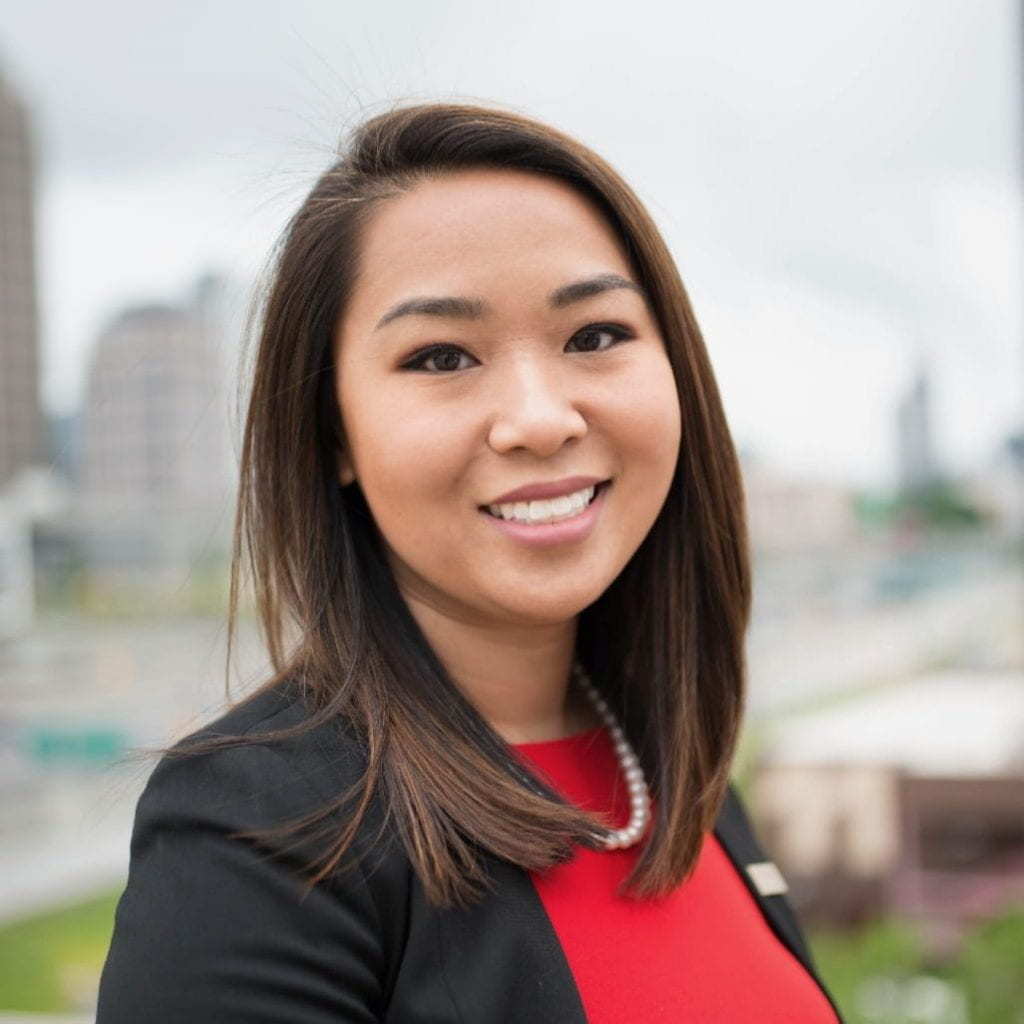
search process. During an office hour visit with Dr. Richard Fujimoto, who was the Chair for the School of CSE at the time, I shared my confusion and struggles. Dr. Fujimoto kindly showed me great empathy, shared multiple resources to help me succeed, and said that “your engineering education combined with liberal arts background can be very powerful!” Since then, I strive to treat every encounter with someone who is on their journey the same way through understanding, sharing, and empowerment.
What has been the biggest challenge you have faced in your career?
Believe it or not, my biggest challenge has always been self-doubt. Once I can get over the confidence hurdle and commit to the responsibilities, often “big shoes to fill”, I was able to succeed in the pursuit. This is exactly why I surround myself with mentors, friends, and allies who can see the potential in me before I can see it myself and give me the push and stretch I need to get to the next level and make an even bigger impact.
Sheetal Wrzesien (BS CS, ’94) | Director of Digital Technology at The Home Depot
What role has mentorship played in your life, either as a mentor or mentee?
Mentorship has been impactful in my life both as a mentor and a mentee. I have had a few mentors, both male and female, over the past 25+ years, first in college and then, throughout my career. Mentors have helped me succeed by providing not only practical advice, encouragement and support but also by helping me become more empowered and confident as a woman in Technology. This has been especially important because there are few female role models in Technology, which is still a problem even today. I have been mentoring both men and women for 15+ years. Mentorship has helped me self-reflect, develop as a leader, gain recognition for my skills and experience, and benefit from a tremendous sense of fulfilment and personal growth.
How would you describe a successful mentorship?
Effective mentorship takes effort and requires skill, structure and commitment from both the mentor and the mentee to be successful. Good mentors are credible, make time for their mentees, listen, and share their ideas and experience without telling mentees what to do. They help mentees acknowledge their achievements and strengths, while realizing growth opportunities. Good mentees are clear about their career goals, committed to expanding their capabilities, able to seek and accept feedback and act on it, be ready and willing to meet on a regular basis, and be personally responsible and accountable. Finally, the mentoring relationship between the mentor and mentee must be actively managed and nurtured via the use of best practices such establishing a meeting cadence, defining an agenda for each meeting, trust and confidentiality, and setting boundaries as to what maybe off limits.
Why did you choose to earn a degree in computer science?
Growing up in West Africa as a high schooler in the 80s, I did not fully understand what computer science was or have access to any computers. In fact, I had never seen a computer in real life. What I did have access to though, were American movies such as Electric Dreams and War Games. While I knew what I saw in these movies was fiction, they visualized for me the possibilities of a fascinating future through computer science. I wanted to be a part of making that future!
What advice would you give to female high school students considering a major in CS?
I have participated in several career information fairs for middle and high schoolers where I often get asked what students should do to prepare for a degree and career in Computer Science. The top 3 things I tell them that they can start doing immediately are: Work on their Math skills by taking as many advanced Math classes as possible, such as Calculus and Statistics, while in high school. Get familiar with computer programming by taking Computer Science classes offered at their high school including AP Computer Science. Learn one programming language as well as possible, for example JavaScript or Python, and work on coding related projects using this language in their free time for fun!
Why should a young woman interested in CS choose Georgia Tech over another school?
Besides the obvious reasons, Georgia Tech being a top 5 school, a leader in computer science and the cost versus lifetime value of a degree from Georgia Tech when compared to other top universities, why choose Tech? Unlike other large top-ranked universities, at Georgia Tech you are not just a number, each student is a part of a family, community and support system that is there for you not just while you are in school but beyond, throughout your life and career. I experienced this firsthand when as a teenager, I travelled thousands of miles from Accra, Ghana to the U.S. to study Computer Science at Georgia Tech. I left everything I had ever known behind, including my family and friends, without having a single acquaintance in the U.S. Tech gave me care and support personalized to my unique needs which helped me become who I am today. This is what every young woman who chooses Tech can count on. Now, 30 years later, I am still very much a part of that Tech family and community with support for my career and beyond.
What has been the biggest challenge you have faced in your career?
Overcoming the likability conundrum – as a woman in technology who is confident, direct and assertive, I have risked being disliked because I do not fit the gender stereotype of a woman as gentle and caring. Conversely, if I had tried to fit this gender stereotype, I would have been liked more but not considered leadership material.
Marisa Hoenig (BS CS, ’18) | Software Developer Consultant at ThoughtWorks
What role has mentorship played in your life, either as a mentor or mentee?
My role as a mentor to others has made me realize that sharing my journey can help others with theirs. I always fine it easy to forget how difficult parts of my journey were, like getting internships or finding a full-time job. But then, mentoring someone who is walking a similar path allows me to reflect on my journey and save them from the mistakes I’ve made. This realization became the motivation behind my podcast, Blossoming Technologist—to help other young professionals navigate the tech industry. I knew that my story and the stories of young professionals could have a profound impact on people trying to write their narratives, too.
How would you describe a successful mentorship?
A successful mentorship is a two-way relationship, beneficial to both parties. I’ve been both a mentor and mentee, and both roles have helped me grow in profound ways.
Why did you choose to earn a degree in computer science?
I’ve always loved computers. As a kid, I taught myself HTML and CSS and soon learned those mapped to a real career. Though I took a few computer science classes in high school, I never knew what a job in computer science actually looked like. Before starting at Georgia Tech, I participated in a 3-week immersive code camp at Google called Computer Science Summer Institute.
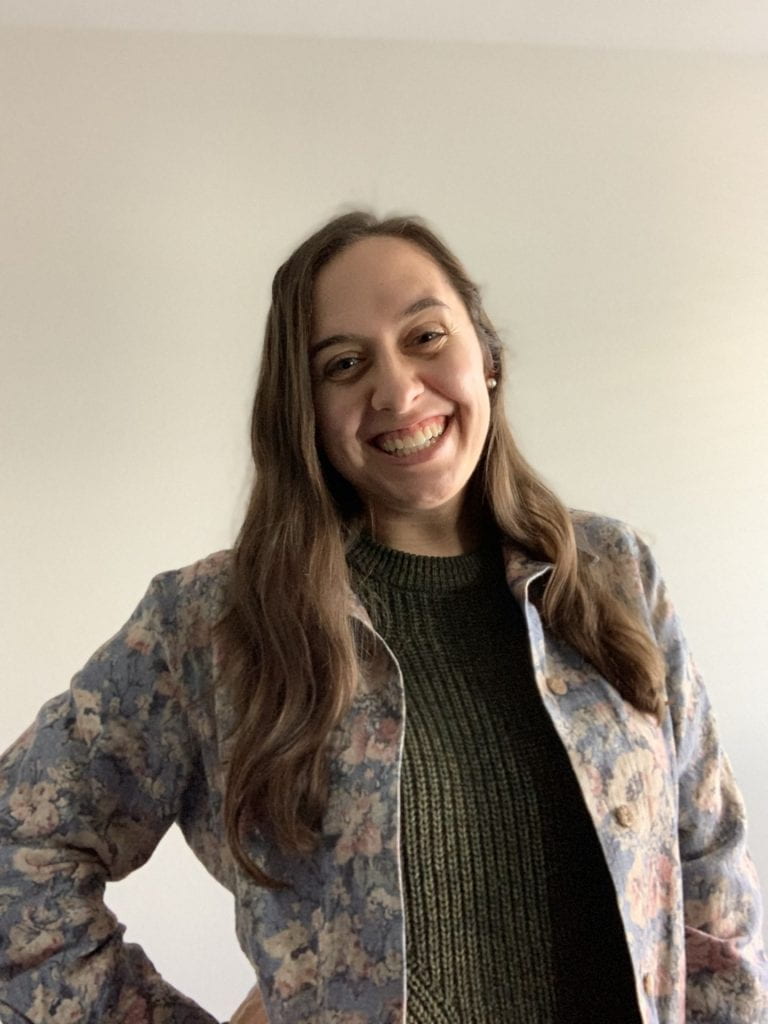
The instructors made computer science fun and easy-to-understand, and I was able to see real software engineers doing the work they loved. Seeing women teaching the lectures and spending 1:1 time with us to make sure we understood the concepts showed me that this was a field I could see myself in. Two days after the program ended, I started at Georgia Tech and changed my major from undeclared engineering to computer science.
What advice would you give to female high school students considering a major in CS?
Don’t let the stereotypes of computer science scare you. While many people think of computer science as a field for men, there are a lot of women involved, though not nearly enough.
It’s crucial to have more women and diversity overall in tech because it impacts the technology we build every day. If we’re building products for everyone, then we need teams just as diverse as the customers who use the products. Your unique background and perspectives bring value to teams. If you’re considering CS, try it out and see if you enjoy it. A career in tech can look like a lot of different things, and as technology becomes more prevalent, understanding how it works will only become more important.
What is something about your time at Georgia Tech/College of Computing that you carry with you, or that still informs your professional life?
At Georgia Tech, I learned how to make people feel welcome. During my time serving as President of Women @ College of Computing and various leadership positions in Circle K International, I always made it my mission to make sure people felt accepted at meetings or events because it’s a terrible feeling when you work up the courage to attend something and no one speaks to you.
Beyond money, awards and job titles, what’s the biggest measure of success?
The biggest measure of success is the number of lives you’ve positively impacted. It’s easy to get caught up in money and awards, but at the end of the day, are you building something that is making a difference in people’s lives? Are you showing up to meetings and caring about those you work with? There are so many ways to make a positive impact, and giving to others is always the greatest gift I can give myself.
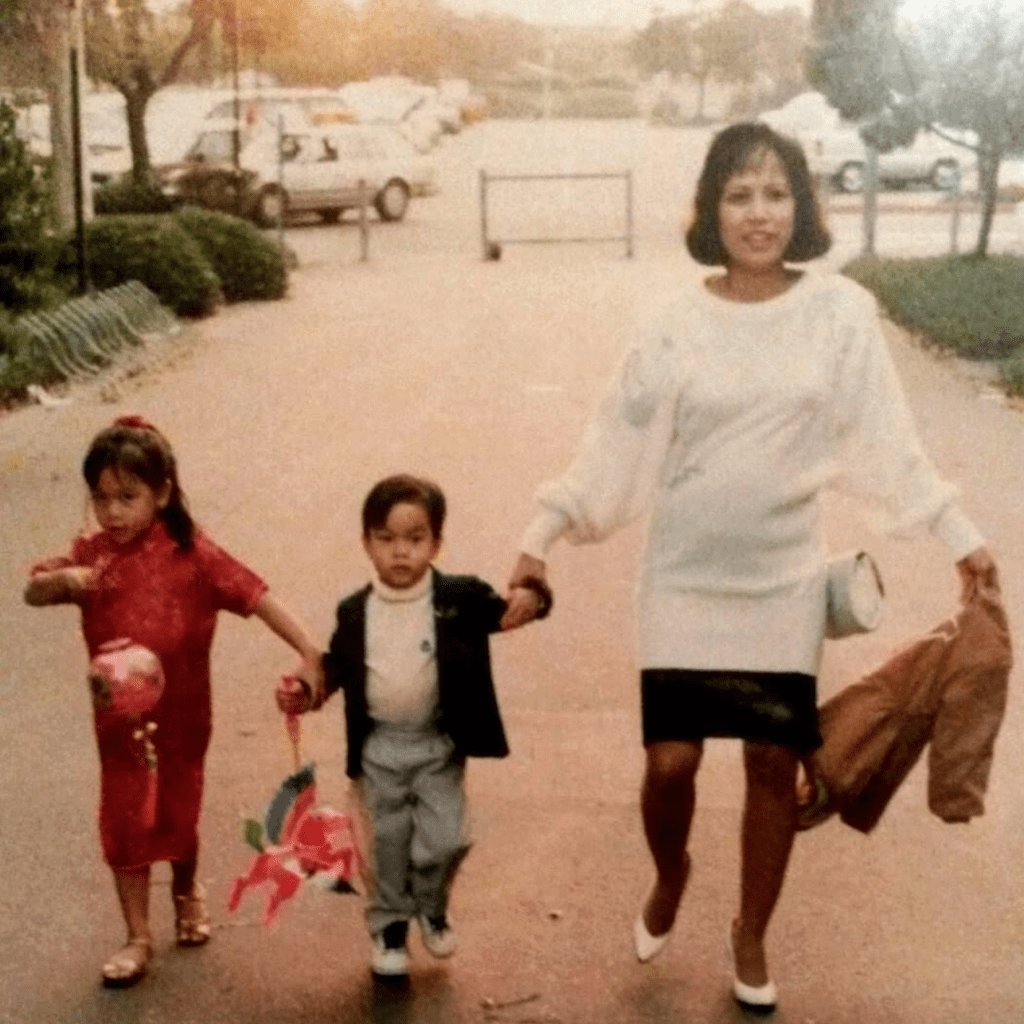
Alumna Kathy Pham Creates Scholarship to Celebrate Mother’s Life and Memory
Kathy Pham (CS 07, 09), a Vietnamese American, Fellow of Harvard and Mozilla, and Digital Service Expert at the White House, attributes her success in no small part to her mother, Mary Hương Thị Phạm.
She remembers her mother working long hours in restaurants and nail salons, and still making sure there was delicious, comforting, Vietnamese food on the table when they got home from school.
“I attribute my own work ethic and resilience to my mom,” Pham said. “I often wish she were still around so I could pay it all back to her, treat her to a life that she deserves and worked so hard to give us. But since I cannot do that, the next best thing is to pay it forward,” added Pham.
Mary Hương Thị Phạm passed away in 2016 after a three-year battle with leukemia, just a few weeks after meeting her first grandchild. She left behind an incredible family legacy: daughter Kathy Pham (BS MS CS); son Major David Pham (BS MGMT), now a United States Marine Corps infantry officer; and son-in-law Mike Evans (BS EE); as well as her 94-year-old mother and eight siblings. Now, Kathy is honoring her mother’s life and work by endowing a scholarship in her name.
“I really want to honor my mom, who worked so hard her whole life,” Pham said. “She gave us so much. Even though she was unfamiliar with the university system, she made sure our basic needs were met so we could study and get into a
About the Scholarship:
Mary Hương Thị Phạm was the mother of Kathy Pham and David Pham, and mother-in-law of Mike Evans, three proud Georgia Tech alumni. As a refugee and single mother, Mary worked multiple jobs to raise two kids who would eventually attend Georgia Tech, benefiting from various scholarships and support. Kathy majored in computer science. David majored in management and was part of ROTC, later joining the Marine Corps. Mary died in 2016 after a three-year battle with Leukemia, just five weeks after meeting her first granddaughter, Alexandra. This endowment honors Mary Pham, single parents, and resilient fighters who push for the best for themselves, their families, and their societies.
university like Georgia Tech.”
“This scholarship also honors the strength and resilience of all the women who made me who I am — like my grandmother, who survived multiple bombings and had the strength to send her kids on a boat in the middle of the night to seek a better life,” Pham added. The Mary Hương Thị Phạm Scholarship will be awarded annually to eligible CS undergraduate students, with a preference for women and those in financial need.
Mary Hương Thị Phạm was one of the tens of thousands of Vietnamese refugees who fled for America in the 1980s. She became a U.S. citizen in 1995. She had a challenging life, navigating a new world and raising two kids, but she always made sure she taught her children to learn from the obstacles in their way.
“The challenges were good lessons for us,” Kathy Pham said. “We got jobs as soon as we were old enough to work so we could pay for our expenses and also help support the household. I think that’s good practice for any family regardless of income.”
“Another challenge was figuring out where I could go to college,” she added. “But that limitation led to me staying in state and going to Georgia Tech, which set such a strong foundation for the rest of my career. And I still smile thinking of all the bragging my mom would do about me and my brother going to Tech.”
One of the reasons that Kathy Pham chose to memorialize her mother with a scholarship is that she still remembers the scholarships she got in college. “The financial aspect was really helpful,” she said. “Every amount made a difference. But there was also validation as well. And it’s never too early to start giving back.”


